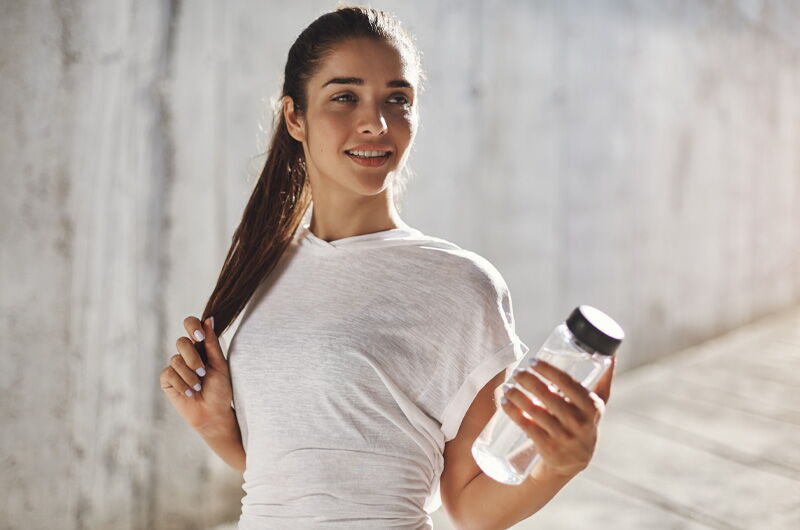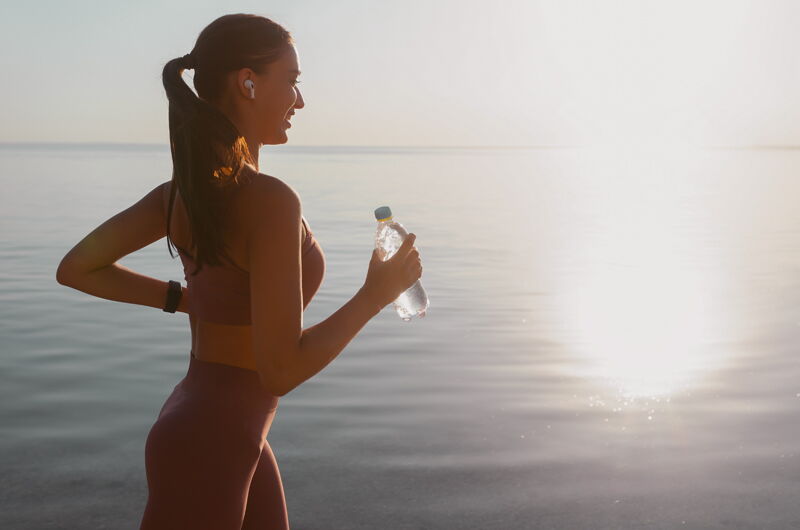Water; one of the fundamental components for human life, the element that allows the body to survive and the correct functioning of each of its cells, tissues and organs.
Many of the physiological functions depend on its presence in an important% within our body: your body uses water to maintain its temperature, remove waste and lubricate the joints.
Water is necessary for general good health and even more so when we decide to do physical activity.
Hydration and physical activity
The consumption of water or other drinks serves to replenish the fluids lost during exercise.
Restoring fluids maintains normal muscle function, helps prevent a decrease in physical performance, and reduces the risk of heat stroke (1).
Symptoms of exertional heat stroke are tachycardia, hypotension, hyperventilation, vomiting, diarrhea, seizures and coma in the most severe cases (4).
Despite these severe effects, many athletes don't take seriously the effects of hydration on athletic performance and maintenance of health levels, particularly in environmental situations that further expand this physiological need such as heat and humidity.

It has been shown that a loss of sweat equal to 2% of body weight causes a significant decrease in physical and mental performance. Losses of 5% or more in body weight during physical activities can reduce work capacity by about 30% (6).
In addition to dehydration affecting work capacity, sweat losses greater than 2% of body weight increase the risk of nausea, diarrhea, vomiting and gastrointestinal problems (1).
Dehydration: a matter not to be underestimated
Dehydration can cause a decrease in:
- blood volume
- cutaneous blood flow
- sweating
- heat dissipation
with an increase in the internal temperature and the speed of glycogen use. The most likely physiological mechanism affecting a person's maximum aerobic power (VO2 max) and therefore athletic performance is maximum cardiac output (2).
Determining the amount of fluids to drink before, during and after a training session or sporting event varies depending on the person, activity, time and duration.

muscle cramps, fatigue, dry mouth, headache are all symptoms of dehydration
Not just water during physical activity
Here are some general guidelines to follow to ensure proper hydration:
If you are participating in a training session or an event that lasts more than 60 minutes, it may be important, in addition to drinking water to decide, use a rehydrating or sports drink containing electrolytes (sodium, potassium, magnesium) to replenish the fluids lost by the body.
This is especially important for long distance runners as there is a loss of 1 to 3 grams of sodium per hour with sweat.
Typically, if your exercise is less than 60 minutes, you will be able to replenish electrolytes at your next healthy meal.

During training, its essential no wait to feel the thirst to drink: its recommended to do at regular intervals
Hydration is really essential and requires awareness.
Do you, for example, drink enough? Ask yourself this and if you aren't doing it yet remember to provide.
You will surely notice how adequate hydration can change your performance and your state of well-being.
